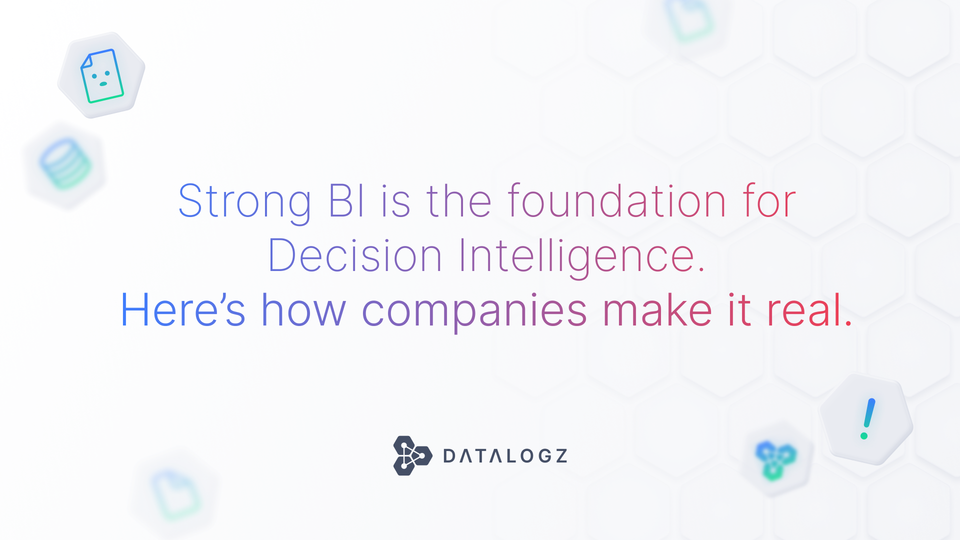Best Practices for BI Metadata Management
Effective metadata management is critical for maintaining high-quality data in BI systems.

Business Intelligence (BI) is the process of transforming raw data into actionable insights for organizations to make informed decisions. Effective BI depends on the quality of data, and metadata plays a crucial role in ensuring data quality and consistency in BI systems. Metadata provides information about the data, such as its structure, meaning, relationships, and context. In this blog post, we will discuss the best practices for BI metadata management, which is essential for maintaining high-quality data in BI systems.
Benefits of Metadata Management
Effective metadata management has numerous benefits, including improved data discovery and documentation. Metadata enables BI users to understand the data better, making it easier to find and use. It also helps users identify relationships between data, which can lead to new insights and discoveries. Properly documented metadata allows BI users to understand how the data is structured and how it has been transformed, making it easier to interpret results and create reports.
Metadata Standards
To manage metadata effectively, it's essential to establish metadata standards and policies for BI systems. Metadata standards define the data elements, their attributes, and relationships between them. By establishing metadata standards, organizations can ensure consistency in the way data is defined, which simplifies the process of aggregating data from different sources. Metadata standards also help organizations maintain data governance and ensure compliance with regulatory requirements.
Metadata Tools
There are several metadata management tools and techniques available that can help organizations manage their metadata effectively. One such technique is data lineage, which tracks the journey of data from its source to its destination, providing transparency and accountability for data usage. Data lineage also helps organizations identify where data quality issues may have originated, enabling them to take corrective action.
Another useful metadata management tool is impact analysis, which identifies the impact of changes to data or metadata on other parts of the BI system. Impact analysis helps organizations assess the potential impact of changes to data and metadata before implementing them, reducing the risk of unintended consequences.
Metadata Maintenance
Metadata maintenance is an essential aspect of effective metadata management. Organizations must ensure that their metadata is accurate, complete, and up-to-date to ensure data quality and consistency. Metadata maintenance includes activities such as metadata validation, metadata cleansing, and metadata enrichment.
Metadata validation involves verifying that the metadata conforms to established standards and policies. Metadata cleansing involves removing inconsistencies, inaccuracies, and redundancies from the metadata. Metadata enrichment involves adding additional information to the metadata, such as business rules and data quality metrics, to make it more useful.
In conclusion, effective metadata management is critical for maintaining high-quality data in BI systems. Metadata provides valuable information about the data, which enables BI users to understand it better and make informed decisions. Establishing metadata standards and policies, using metadata management tools and techniques, and maintaining metadata accuracy and completeness are all essential best practices for effective metadata management. By following these best practices, organizations can ensure that their BI systems deliver accurate, consistent, and reliable data for decision-making.
Key takeaways:
- BI metadata management is essential for ensuring data quality and consistency in BI systems.
- Effective metadata management provides benefits such as improved data discovery, documentation, and reuse, resulting in better decision-making and increased efficiency.
- Metadata standards and policies are crucial for establishing guidelines and rules for metadata creation, management, and maintenance, resulting in uniform data definitions and usage across the organization.
- Metadata management tools and techniques, such as data lineage and impact analysis, help organizations to manage and maintain metadata effectively, improving data quality, consistency, and decision-making.
- Metadata management is an ongoing process that requires continuous maintenance and management to ensure that metadata is up-to-date and relevant, and data remains accurate and consistent.
- Establishing best practices for BI metadata management can help organizations make the most out of their data, improve decision-making, and gain a competitive edge in today's data-driven world.




